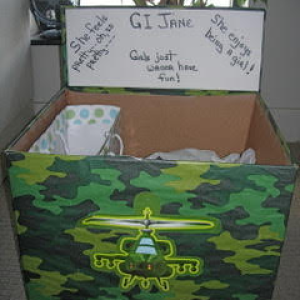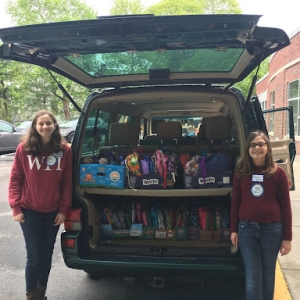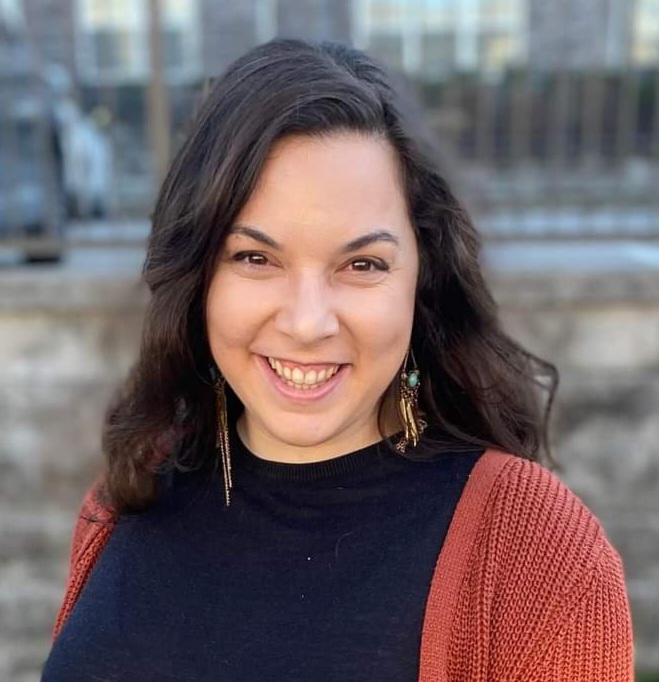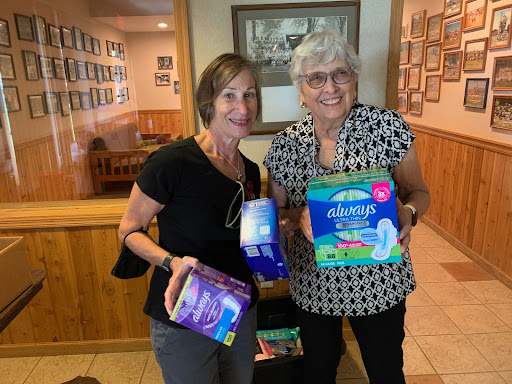
When looking at feminine hygiene, not all menstruators have equitable access to basic products. This lack of access is now creating a gap, often referred to as period poverty. According to the Journal of Global Health Reports’ February 2022 article, “Period Poverty: Why it Should Be Everybody’s Business'' the statistics that have come to light are alarming, including
- 500 million people lack access to menstrual products and hygiene facilities.
- 16.9 million people who menstruate in the US are living in poverty.
- Two-thirds of the 16.9 million are low-income women in the US who could not afford menstrual products in the past year, with half of them needing to choose between menstrual products and food.
- 14.2 % of college-menstruating people in the US experienced period poverty in the past year.
- 10% of menstruating college students experience this monthly.
- Tax on menstrual products in the US ranged from 4.7% to 10% in 2019.
While the “tampon tax” was eliminated in Canada in 2015, organizations such as The Period Purse continue to address issues of access, product cost, and stigma in Canada.
Trina Novak, co-chair of WRJ’s Education to Action Committee, noted that, “as a collective, WRJ continues our pursuit of equity in reproductive health with a broader lens. That includes menstruation. Access to products and education are shockingly critical needs right here in our hometowns. …and we can make a significant and direct impact today. This activism across WRJ allows us to raise our individual voices to make a collective impact—today and for the future.” Read on to learn what our Districts have been doing.
Heartland District
During the Midwest (now Heartland) District’s Kallah at OSRUI camp in September 2022, people participated in a social action project on Period Poverty. Women were asked to donate all types of "period products," including tampons, pads, and new women's and girls' underwear. These products were then donated to The Women's Center in Waukesha, Wisconsin, and the Food Pantry of Waukesha County. See the photo above featuring WRJ VP of Engagement Judy Wexler dropping off products.
Pacific District
WRJ and Beth Israel Sisterhood in Portland, Oregon, focused on the issue of period poverty by partnering with local organizations to provide period products for menstruators in need. They educated the community by discussing the topic of menstrual justice during services, in their newsletter, and organizing projects like making period bracelets to raise awareness. They also set up a digital postcard writing station at various events. Hundreds of tote bags and period packs filled with a monthly supply of period products and personal hygiene items were donated to local nonprofits. Guest speakers attended to tell firsthand stories showing how our support makes a difference. They partner with their synagogue high school program and the Jewish Federation's Dignity Grows Portland program because we are stronger together.
WRJ and/ Beth Israel Sisterhood in Portland, Oregon program synagogue high school students and Jewish Federation's Dignity Grows Portland attendees collect tote bags with menstrual products and share information about their partnership.
Atlantic and Mid-Atlantic Districts
For their latest project, the Atlantic and Mid-Atlantic Districts came together to help those in need of basic comfort supplies that most of us take for granted. They learned how women worldwide are taking control of their menstrual health and personal comfort as well as providing economic opportunity. As a group, they watched and discussed the 2019 Academy Award-winning Netflix documentary entitled: Period. End of Sentence. They supported Period.org and Jewish Family and Children’s Service by assembling “Period Packs” for distribution to those in need. Together, they made hygiene kits that would last a week. Most of the packets were made up solely of sanitary napkins since there are cultures/religions that don’t allow tampon use, but they did make up mixed kits and labeled them clearly. The kits were brought to homeless shelters and local organizations that could distribute them.
Southwest and Southeast Districts
Temple Emanuel of Tempe (Arizona) participated in Women for Women where they donate feminine hygiene items and hosted a packing party making bags for distribution to the local women's shelters. Congregation Schaarai Zedek Sisterhood in Tampa, FL hosted a program to collect menstrual products for the G.I. Jane Project. Menstrual products are one of the most requested items for women in the military. The G.I. Jane Project collects and sends menstrual products, toiletries, and cosmetics to soldiers in the military who are stationed in Afghanistan. In addition, there have been a couple of other projects where menstrual products were collected for homeless women and teens.
Northeast District
The Northeast District took part in The P.A.D. Project Initiative (Providing Access and Dignity). The project helps provide a dignified way for all women in our communities to access feminine hygiene products.
Attendees at the 2019 Kallah collected individually wrapped pads and pantiliners donated by attendees and sisterhood groups and assembled them into decorated bags. The bags were delivered to Jewish Family Services (JFS), in Stamford CT, over six months. The kits were set up for distribution at the JFS Kosher Food Bank so anyone in need could receive these health products.
Following a presentation about Days for Girls, the Sisterhood of Temple Beth Shalom, in Needham, MA, partnered with the Needham chapter of Days For Girls to create an interfaith and intergenerational group that met once or twice a month to sew menstrual kits beginning in January 2019. Days For Girls is an international organization that provides reusable menstrual kits and education to girls who otherwise have no access to feminine hygiene products. These girls are in third-world countries and miss 25% of their education since they are unable to attend school when they have their periods. The kits keep them in school and greatly increase their lifelong earning potential. In addition, having these kits helps keep the girls safe from sexual assault, which often happens to girls who are left unattended during the school day.
The Temple youth became involved through Rosh Chodesh groups and their B'nai Mitzvah projects. Some of these girls continued to participate after their bat mitzvot.
The sisterhood was awarded a WRJ Incubator Grant, which helped cover the cost of buying more supplies and therefore creating more kits. Donations of sewing machines, irons, and ironing boards were also made.
Women come back regularly to help with these hands-on philanthropy projects. It is one of the most successful and well-attended sisterhood programs. The energy in the room is palpable! Participants include women who have not typically attended sisterhood events making this program a great introduction to the sisterhood. The interfaith component is a wonderful community builder as many different facets of our community come together to help solve a significant world issue of women's rights with a simple solution.
How to Organize Your Own Period Poverty Project
We hope the initiatives and projects our members have been accomplishing inspire you to work with your Sisterhoods and Districts to highlight this matter. Dana Spiel of the Southwest District and WRJ Vice President of Member Services Judy Wexler of the Heartland District shared some tips for sisterhoods who are interested in addressing the issue of Period Poverty in your communities:
1. Advertise through newsletters, social media, and at other events - collections can run beyond a designated event.
2. Set up a collection box in your Temple lobby.
3. Educate on people’s need for period products; host a film or book discussion on "Period. End of Sentence."
4. Be inclusive of all who menstruate, including girls, women, nonbinary, and transgender people.
5. Contact your legislators if you live in a state or province with a tampon tax.
6. Collaborate with other organizations that empower people to experience their periods with dignity.
7. Collect women's and girls' underwear or money, as well as tampons and pads.
8. Use the www.womenshelters.org website to find shelters to donate to, or donate to prisons, schools, or food pantries.
Period poverty continues to be an issue and all menstruators deserve access to basic hygiene products. Small steps can make a big difference in allowing menstruators to have the care they need.
Related Posts
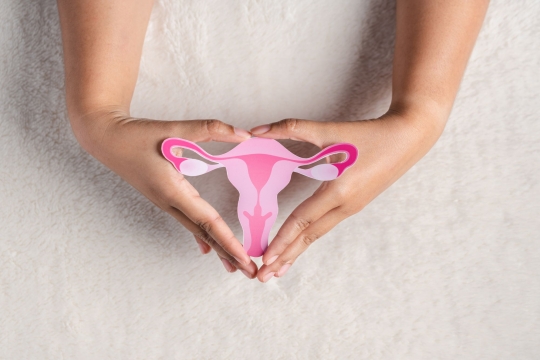

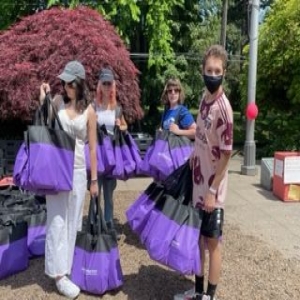
83ce.jpg)
